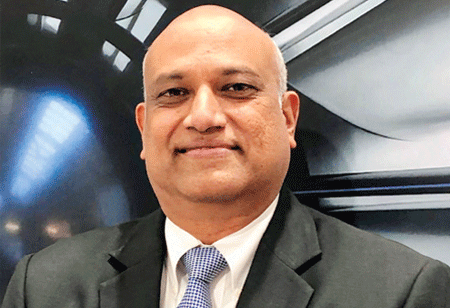Kishore, who joined Rolls-Royce in 2012, possesses more than three decades of professional experience.India is today in a unique position to recast the framework of manufacturing with its clarion call of `Atmanirbhar Bharat'. As India celebrates 75 years of Independence, the Indian government has re-committed itself to the goal of making India self-reliant, with a focus on indigenous manufacturing, facilitating investments, fostering innovation and transforming India into a global manufacturing hub. Elevating the manufacturing sector into a competitive, world-class hub has the potential to leapfrog the country's self-reliance goal and economic advancement.
Let us refocus on the goal for the sector to be a key contributor to India's GDP, growing the share from 17 percent up to 25 percent. India's services sector is a well-documented success story for bench marking. However, while replicating this success for the manufacturing sector, we must remember that it is not cost arbitrage that will win the game for us, but rather a holistic approach to creating value arbitrage. The customer is not just seeking the cheapest price, but is today ready to buy the right product, the right quality, at the right price. If anything, the pandemic has made the world rethink `value' as a key proposition when looking at sourcing.
The Government of India (GoI) has taken initiatives such as reduction in corporate tax rates for new manufacturing units, introduction of Production Linked Incentive schemes (PLI), and encouraging foreign direct investment (FDI) in manufacturing to reduce India's dependency on imports, while encouraging the sector to play an integral role in the global supply chain.
To make the next level of transformation in the manufacturing sector, our approach must be that of building an ecosystem that supports and enables technology creation through manufacturing, supply chain, logistics and services. In addition to robust logistics infrastructure, we need connected and efficient value chains that link raw material providers,
technology services, multi-specialty service providers, skilled talent, and research and development. Given India's geographical diversity and distribution of natural resources, we could well be building a national grid where parts of the country are connected through a manufacturing superhighway.
It is also time to look at automation and other disruptive technologies and manufacturing capacities as change agents, rather than as a threat or deterrent to generating employment. We should look at it as a strategic shift from low-value low-skilled jobs to higher value-added jobs. Once value-based production starts to grow, we will see an exponential growth in downstream manufacturing activities, much needed to complete the supporting ecosystem, leading to further opportunities for mass employment.
Historically, India has attracted global technology largely in areas where there is a huge domestic market to serve. In the automobile industry for example, all global players are in India, but mainly to serve an exploding base of customers, with few using India as a hub for global manufacturing. As a country, we have a big market, and are now able to leverage the capability and capacity to scale up for a global market. India needs a co-development and co-creation led strategy to create `differentiation' if it is to compete for a serious share of the global value chain. This would attract global players by offering benefits at government-to-government levels.
There is significant opportunity for India to leverage the technology advantages that global players bring to `Create in India', with India co-owning the Intellectual Property (IP) in areas of strategic importance. `Creating in India' in collaboration with global players will catapult India's vision to create a strong ecosystem and commercialize production locally, and to use this base to boost global supply chain and export capabilities.
To make the next level of transformation in the manufacturing sector, our approach must be that of building an ecosystem that supports and enables technology creation through manufacturing, supply chain, logistics and services
Kishore Jayaraman, President - India & South Asia, Rolls-Royce
A thriving local industry powered by India's own technology will also provide an apt platform for its skilled and ambitious workforce. The reforms agenda at the central and state levels has helped create a conducive environment for building capabilities to `make more in India', and the government's focus on `ease of doing business' is further aiding this development.
Industry will play a significant role in the way forward as well, as India gears up to realize its true potential. The future will be about creating large infrastructural programs, more partnerships and co-creation opportunities, up-skilling of the talent pool and adopting technology intelligently as we move up the manufacturing value chain. Fruitful partnerships between nations and industry collectively will fuel capability building of the ecosystem, and India will truly become the home base for manufacturing for India, and for the world.
